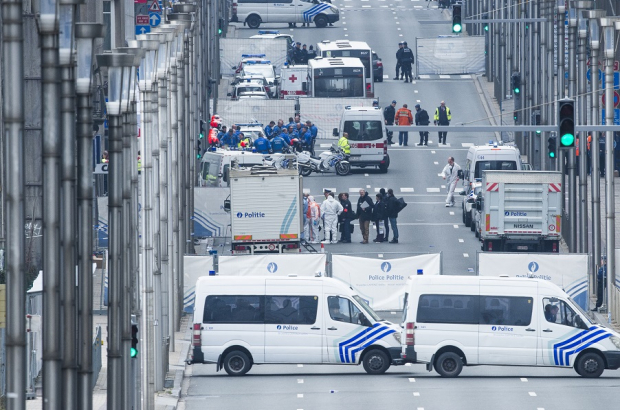- Daily & Weekly newsletters
- Buy & download The Bulletin
- Comment on our articles
Lawyer who survived terrorist attack sues Belgian state for negligence
A Brussels lawyer who survived the suicide bombing at Maelbeek metro station on 22 March 2016 is suing the Belgian state, public transport operator Stib and insurance provider Ethias for gross negligence in the aftermath of the attacks.
Nic Reynaert’s case is based on a huge file of irregularities, lack of communication and misleading information he says was the norm for victims of the two terrorist attacks that took place that day. The lawyer is convinced that information was withheld from victims that had a direct effect on their ability to receive help and be paid damages in the following months and years.
Victims of the two suicide bombings that took place that morning were left to their own devices, he told Het Laatste Nieuws. Authorities “failed to respond adequately on the day of the attacks, concealed crucial medical information and made the damages claim needlessly complicated,” he said.
Dazed and confused
Reynaert himself was taken to hospital following the explosion of the bomb on a metro car in the Maelbeek station. He was in an attached car.
He had lost his hearing, but it soon came back and, as he had no other serious injuries, he was discharged within 45 minutes. He received no information as to whether he needed any medical follow-up, and no one was able to tell him what to do next. He simply called a friend to drive him home.
It was the start of a confusing process that led him to investigate other victims’ experiences. His 55-page complaint lists both large and small blunders and allegedly deliberate attempts at disinformation.
This includes the possibility that there was asbestos that came free in the metro station. “Stib has never said one word about this,” he told the paper. “In the years that followed the September 11 attacks in New York, emergency workers developed all kinds of lung diseases because they inhaled asbestos. In Belgium, we have not been informed about this potential danger. We have the right to know.”
 Nic Reynaert (second from left) during an unrelated hearing in 2018 ©Nicholas De Cocker/BELGA
Nic Reynaert (second from left) during an unrelated hearing in 2018 ©Nicholas De Cocker/BELGA
Reynaert is concerned about other long-term effects of living through that kind of blast. He and other victims spent months fighting extreme fatigue, headaches and anxiety. They were all told they had post-traumatic stress and that it was just a matter of time until they felt better. Reynaert himself was not able to return to work until the following year.
Then he learned about blast-induced traumatic brain injury, a phenomenon that follows being in close proximity to a bomb blast. “It is described in military documents and in a wealth of scientific literature,” he said. “When soldier are the victims of an explosion, they receive hyperbaric oxygen therapy within 24 hours.”
That means entering a confined space where the air pressure is regulated, increasing air flow throughout the body. “This ensures that the hair cells in the inner ear are not permanently damaged,” he explained. “Not a single victim of the March 2016 attacks received it. Cortisone therapy is also standard procedure for military personnel but was never offered to us.”
‘A labyrinth’
In the end everyone’s physical complaints were attributed to psychological reasons, and they were left trying to diagnose themselves. “So almost no one had a neurological exam. By attributing everything to psychological problems, the insurer – and the government – could pay less in damage claims.”
Finally, he refers to the system whereby victims could claim damages as a “labyrinth that you can barely find your way through. I see it as a concerted effort to exhaust people who are already traumatised so that they just give up and accept the little that is offered to them”.
The first hearing in his case takes place, coincidentally, on 22 March – five years to the day after the terrorist attacks. “They have done everything they can to bury the real consequences of the attacks and to sweep the victims under the rug,” said Reynaert. “Well, they’re not going to get away with it.”
Photo top ©Laurie Dieffembacq/BELGA


















